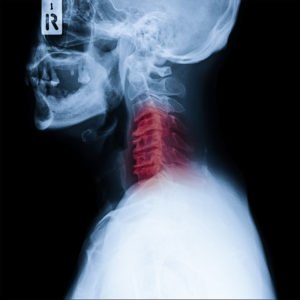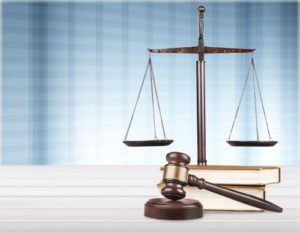
Every personal injury case is different. After you sit for a deposition, it can take weeks or months to reach a settlement agreement. In some cases, one will not be reached, and the personal injury case will have to go to court for resolution, though rare. Depositions are part of a larger process called discovery, where each side of a personal injury dispute is made aware of the strengths of the other side’s case.
While a settlement is the outcome of most personal injury cases, it can be difficult to determine how long it will take to get a settlement after deposition. Even if a settlement offer comes immediately after a deposition, that does not mean it will be accepted. The time it takes to negotiate and accept a settlement may be even longer. A personal injury lawyer can help you understand the entirety of the process.
What Happens During a Personal Injury Deposition?
A deposition gives the lawyers for each side a chance to question the deponent (the person being deposed). The questions you are asked may cover:
- You, your background, and your medical history
- The accident and what happened beforehand or afterward
- Your injuries and their severity and treatment costs
- Your job, income, and the time you miss due to your injuries
Your lawyer will explain the types of questions you can expect, as well as the procedure as a whole. Because anticipating a deposition can be daunting, your lawyer can help you prepare well in advance so that you feel comfortable when the time comes.
Can My Lawyer Be With Me During the Deposition?
You are not required to have a personal injury lawyer, but having one can be advantageous for you and your case. When a lawyer handles your case, they will be present when you are deposed and encourage you to answer each question directly without adding unasked-for information.
Your lawyer may make an objection to a question you are asked. If they do, their objection may be dealt with later in court since a judge does not attend a deposition. They might also instruct you not to answer certain questions and encourage you to limit your answers, rather than sharing too much information.
There will also be a court reporter present who will swear you in before the proceeding since you will answer the questions posed to you under oath. Others who might be present include the defendant, their representative, and a videographer. If needed, there may be a language or sign language interpreter.
Laborde Earles injury was great for me they took care of me very fast and professional. If for any reason I need legal help they will be who I use.
ClientWhat Happens After the Deposition Is Over?
A deposition is a long process that can take hours and in some cases, span multiple days. Once the procedure is complete, the court reporter will transcribe the session and provide copies of the transcription to you, your lawyer, the defendant, and their lawyer.
A deposition will not automatically lead to a settlement offer. If either side requires additional information, interrogatories (written questions and answers) could follow. There are many variables in each case that determine how long it will take to receive a settlement offer and to reach a settlement agreement.
Your Case Can Require Multiple Depositions
After you are deposed, the other party’s representative may question additional deponents, like accident witnesses, medical and accident reconstruction experts, and first responders at the accident scene. This process can add time to your case while they gather as much information as possible through the discovery process.
A Deposition Can Be Used at a Personal Injury Trial
A personal injury case will rarely go to trial, but if it does, the information gained during the deposition can be used at trial. Representatives for each party will review the accumulated evidence and determine whether a trial is the appropriate outcome.
I thank God for Digger & David. I don’t know what we would have done if it hadn’t have been for them.
Rick Smith | ClientA Deposition Can Steer Your Case Toward a Settlement
Most personal injury cases resolve with a settlement. This typically happens when the accumulated evidence indicates negligence and financial liability.
The Timing of the Negotiation Process
The attorney who represents you will play a significant role in settling your case. They will create and send a settlement offer when they believe the evidence warrants financial recovery in addition to:
- Weighing the pros and cons of each offer
- Making recommendations to you
- Preparing a counteroffer on your behalf
Your lawyer will guide you toward a well-informed decision and can protect you from a speedy yet flawed acceptance. The final decision is always yours to make, meaning you, too, play a role in how long it takes to get a settlement after all depositions are completed.
The reassurance from Digger and his staff gave me that renewed hope that it’s going to be okay down the road.
ClientDoes Compensation Vary Between Settlement and Trial?
The types of financial recovery you are entitled to receive will not change whether they are negotiated or determined by a judge or jury. In many cases, your lawyer will demand monetary recovery of your:
- Current and future medical bills
- Current and future loss of income
- Property damage or destruction
- Physical disability or disfigurement
- Ongoing physical pain and suffering
- Ongoing mental and emotional anguish
- Wrongful death damages, if applicable
The amount of income may vary based on settlement or trial. Your lawyer will assign an accurate value to your recoverable damages and strive to obtain the best possible outcome for you.
They treated us like no other people would. Whenever we needed something they were there for us. I put my trust in them and I don’t regret it.
ClientContact Our Personal Injury Law Firm for Help 24/7
We know how stressful it can be to fight for compensation after you are injured in an accident. Our law firm can help. We will explain the deposition process and how long it can take to get a settlement after your deposition.
Contact Laborde Earles to learn more about the deposition process and how we may serve you. Our team gives complimentary consultations when you call.





